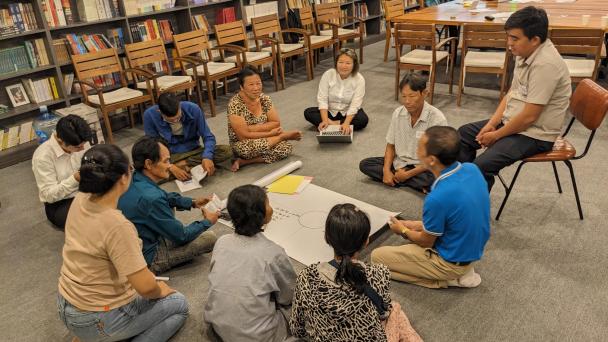Co-constructing climate-health knowledge with informal outdoor workers in urban Vietnam


Part of the ESRC-funded Survey Futures initiative, this research seeks to improve understanding of how the role of the face-to-face survey interviewer is changing, identifying the skills and attributes required by current and future interviewers, and the implications for recruiting and retaining them.
The role of the face-to-face social survey interviewer is changing as mixed mode survey data collection becomes more common. Social survey interviewers of the future will need a wider set of skills to those of their contemporaries, as the role becomes more complex and challenging.
The COVID-19 pandemic has impacted the UK labour market, with the supply and retention of survey interviewers becoming more challenging as a result. The survey industry lost many experienced face-to-face interviewers during the pandemic and it is proving very difficult to replace them.
Rises in the UK minimum wage and the strengthening of casual worker rights are also having an impact on survey organisations, pushing up their costs. The survey interviewer role may not be as attractive as it once was to those looking for flexible work.
As a result, survey organisations are being challenged to reimagine their face-to-face interviewer pay reward models, in an attempt to make the role more attractive and reduce high churn rates and recruitment costs. At the same time, there are on-going downward pressures from research commissioners on research costs.
This research involved semi-structured interviews with 11 people with overall responsibility for face-to-face survey interviewers in the UK, working for organisations carrying out market and or social research. Interviews took place in autumn 2023 and were conducted by Mervelles Limited, a HR consultancy. Research findings were checked with participants at a roundtable event at the beginning of 2024.




Receive a regular update, sent directly to your inbox, with a summary of our current events, research, blogs and comment.
Subscribe